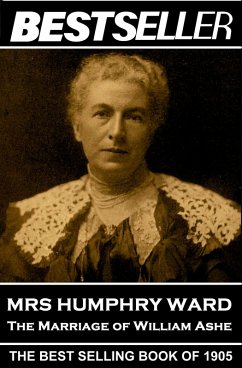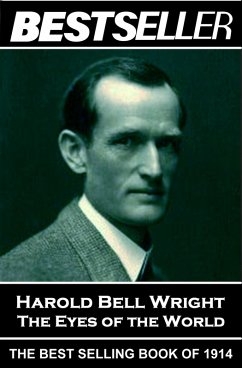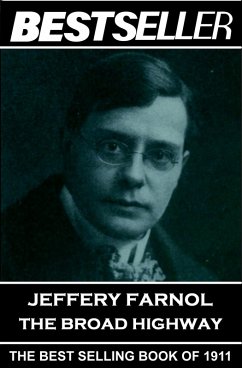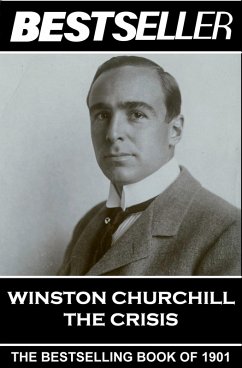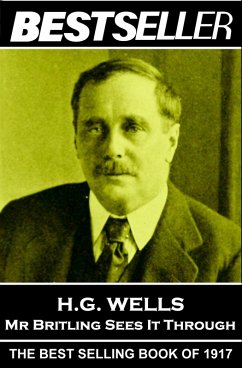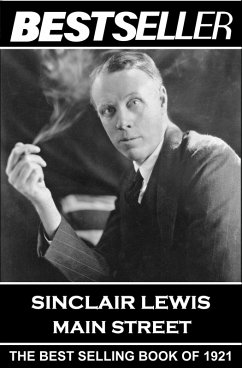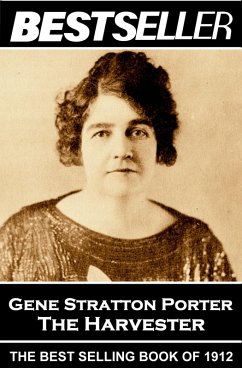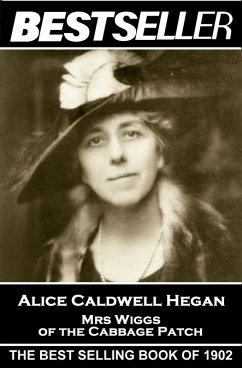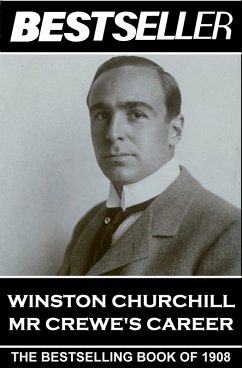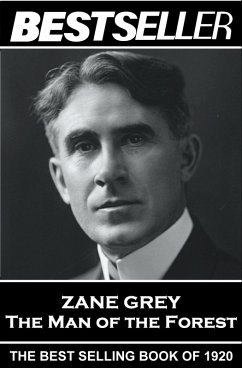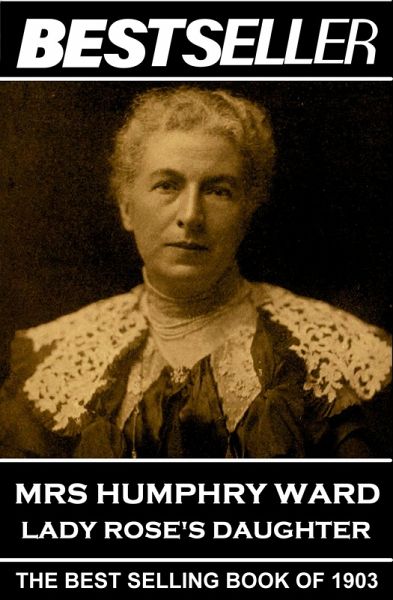
Lady Rose's Daughter (eBook, ePUB)
The Bestseller of 1903

PAYBACK Punkte
2 °P sammeln!
Mary Augusta Ward CBE (née Arnold) was born on 11th June 1851 in Hobart, Tasmania, Australia. Her uncle was the famed poet Matthew Arnold.When Mary was five the family returned to England. Mary now spent much of her time with her grandmother or at boarding schools before, at 16, returning to live with her parents at Oxford, where her father lectured in in history. Her schooldays were the basis for a later novel, 'Marcella' (1894).On 6th April 1872, Mary married Humphry Ward, a fellow and tutor of Brasenose College, and a writer and editor. Mary was very proficient with languages; French, Germ...
Mary Augusta Ward CBE (née Arnold) was born on 11th June 1851 in Hobart, Tasmania, Australia. Her uncle was the famed poet Matthew Arnold.
When Mary was five the family returned to England. Mary now spent much of her time with her grandmother or at boarding schools before, at 16, returning to live with her parents at Oxford, where her father lectured in in history. Her schooldays were the basis for a later novel, 'Marcella' (1894).
On 6th April 1872, Mary married Humphry Ward, a fellow and tutor of Brasenose College, and a writer and editor. Mary was very proficient with languages; French, German, Italian, Latin and Greek. She was also developing an interest in education. After learning Spanish in 1877 she began the writing the lives of a large number of early Spanish ecclesiastics for the Dictionary of Christian Biography. Her translation of 'Amiel's Journal' was published in 1885. All her published works were as Mrs Humphry Ward.
Mary wrote many articles for Macmillan's Magazine over the years, a useful income whilst she wrote books. Her first, a children's book 'Milly and Olly' (1881). In 1884 came 'Miss Bretherton', the story of an actress. Her novels were infused with strong religious tones of the Victorian age which she herself practiced. Mary's popularity was widespread and in the United States her book 'Lady Rose's Daughter' was the best-seller in 1903, and 'The Marriage of William Ashe' of 1905. Her most popular novel was 'Robert Elsmere', which narrated the emotional conflict between the young pastor Elsmere and his wife, whose parochial orthodoxy brings her faith and their love to a terrible impasse.
Mary helped found an organisation for working and teaching among the poor and worked as an educator in the residential settlement movements she set up. Mary declared aim was "equalisation" in society. However, she was also a significant campaigner against women getting the vote. In 1908 she was asked to be the founding president of the Women's National Anti-Suffrage League. Mary took on the job and edited the Anti-Suffrage Review. She published many articles on the subject, and two of her novels, 'The Testing of Diana Mallory' and 'Delia Blanchflower', were used to criticise the suffragettes. In a 1909 Times article she opinioned that constitutional, legal, financial, military, and international problems were problems only men could solve.
During World War I, Mary was asked by the former US President Theodore Roosevelt to write articles to explain to Americans what was happening in Britain. Her work resulted in three books; 'England's Effort - Six Letters to an American Friend' (1916), 'Towards the Goal' (1917), and 'Fields of Victory' (1919).
Mary was appointed a Commander of the Order of the British Empire in 1919.
Mary Augusta Ward died in London on 24th March 1920.
When Mary was five the family returned to England. Mary now spent much of her time with her grandmother or at boarding schools before, at 16, returning to live with her parents at Oxford, where her father lectured in in history. Her schooldays were the basis for a later novel, 'Marcella' (1894).
On 6th April 1872, Mary married Humphry Ward, a fellow and tutor of Brasenose College, and a writer and editor. Mary was very proficient with languages; French, German, Italian, Latin and Greek. She was also developing an interest in education. After learning Spanish in 1877 she began the writing the lives of a large number of early Spanish ecclesiastics for the Dictionary of Christian Biography. Her translation of 'Amiel's Journal' was published in 1885. All her published works were as Mrs Humphry Ward.
Mary wrote many articles for Macmillan's Magazine over the years, a useful income whilst she wrote books. Her first, a children's book 'Milly and Olly' (1881). In 1884 came 'Miss Bretherton', the story of an actress. Her novels were infused with strong religious tones of the Victorian age which she herself practiced. Mary's popularity was widespread and in the United States her book 'Lady Rose's Daughter' was the best-seller in 1903, and 'The Marriage of William Ashe' of 1905. Her most popular novel was 'Robert Elsmere', which narrated the emotional conflict between the young pastor Elsmere and his wife, whose parochial orthodoxy brings her faith and their love to a terrible impasse.
Mary helped found an organisation for working and teaching among the poor and worked as an educator in the residential settlement movements she set up. Mary declared aim was "equalisation" in society. However, she was also a significant campaigner against women getting the vote. In 1908 she was asked to be the founding president of the Women's National Anti-Suffrage League. Mary took on the job and edited the Anti-Suffrage Review. She published many articles on the subject, and two of her novels, 'The Testing of Diana Mallory' and 'Delia Blanchflower', were used to criticise the suffragettes. In a 1909 Times article she opinioned that constitutional, legal, financial, military, and international problems were problems only men could solve.
During World War I, Mary was asked by the former US President Theodore Roosevelt to write articles to explain to Americans what was happening in Britain. Her work resulted in three books; 'England's Effort - Six Letters to an American Friend' (1916), 'Towards the Goal' (1917), and 'Fields of Victory' (1919).
Mary was appointed a Commander of the Order of the British Empire in 1919.
Mary Augusta Ward died in London on 24th March 1920.
Dieser Download kann aus rechtlichen Gründen nur mit Rechnungsadresse in D ausgeliefert werden.




